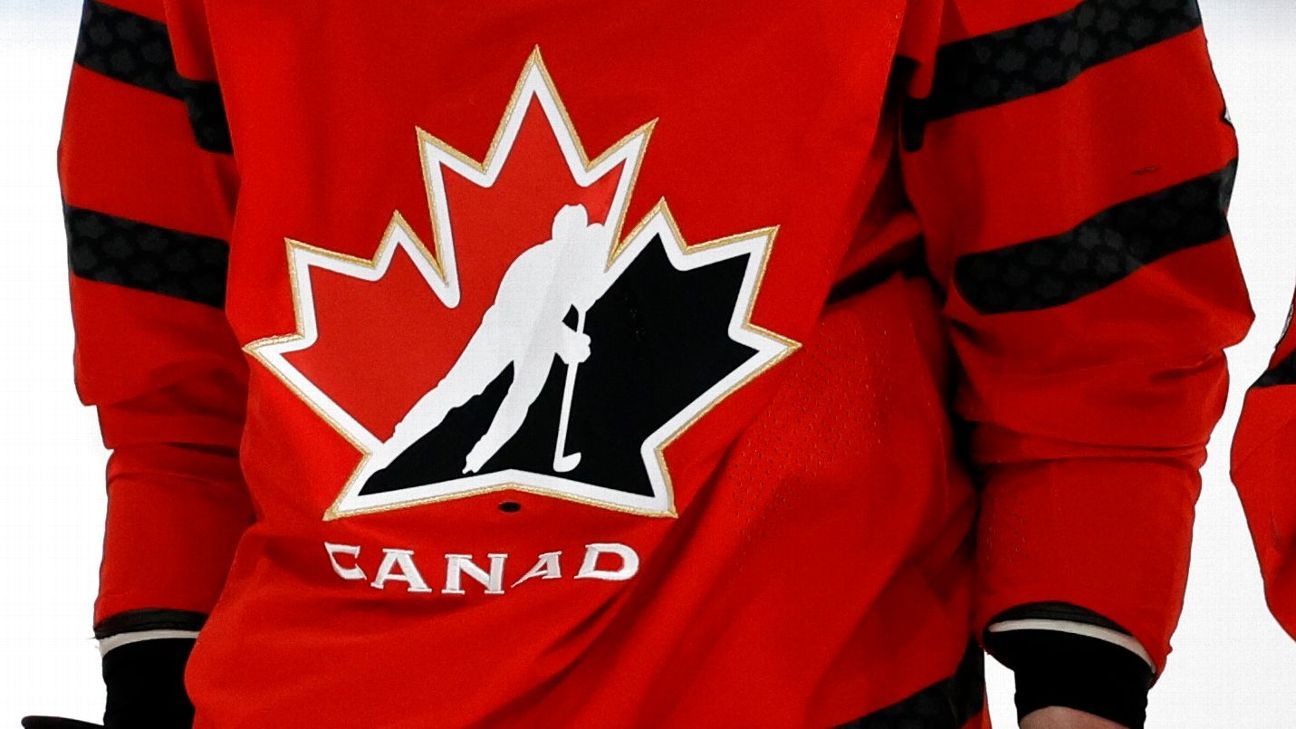It’s nearly 3:30 a.m. on June 19, 2018, and inside a room at the Delta Armouries Hotel in London, Ontario, a six-second cellphone video is being recorded.
“You’re OK with this?” an unidentified man asks a young woman, who is shown from the neck up. “I’m OK with this,” she responds before the video cuts off.
Almost an hour later, another cellphone video is recorded. This one is about 12 seconds long. The same woman stands with a towel covering her chest.
She asks, “Are you recording me?” before declaring, “It was all consensual. You are so paranoid, holy. I enjoyed it, it was fine. It was all consensual. I am so sober, that’s why I can’t do this right now.”
This week, almost seven years since those two brief videos were recorded — and first reported on by
The Globe and Mail and
TSN — those 18 seconds of footage will be at the center of a case that has grabbed the attention of the hockey world as five former members of Canada’s 2018 gold medal-winning World Junior Championship team — Alex Formenton, Carter Hart, Dillon Dubé, Michael McLeod and Cal Foote — each face one count of sexual assault, and McLeod a second charge for “being party to the offense.”
In a lawsuit filed by the woman — referred to as E.M. in court documents — she said that eight players assaulted her over several hours in the London hotel room. She confirmed she engaged in consensual sex with one player, but he invited several of his teammates into the hotel room without her knowledge or consent. E.M. maintains she did not consent to any of the sexual contact or acts that followed...
...The defendants, now aged 25 to 27, came of age during a turbulent period of prominent revelations of sexual violence by formerly esteemed figures. For many athletes from that era, a perception emerged that they were targets due to their fame and/or wealth and that steps and strategies had to be adopted to head off false allegations. In response, athletes sought digital indemnifiers. From “sex contracts” to strategic sexting to so-called “consent videos,” more and more athletes are creating digital footprints of their sexual encounters.
...The aftershocks of that scandal [the Kobe Bryant rape case] on the lives of athletes were significant. Some turned to “pre-sex agreement forms” as insurance against any allegations. In an
interview with Sports Illustrated in 2003, Ava Cadell, an L.A. area sex therapist, said in the wake of the Bryant case she had begun drawing up such agreements. “Athletes are going to carry consent forms just like they carry condoms,” she said. “It’s another layer of protection.”
Stephen Jackson, who played 14 seasons in the NBA, explained to SI why he would rely on a consent form before sex: “People look at us as targets and try to get what they can out of us.”
The concern amongst professional athletes spread to college campuses when, in 2006, an exotic dancer hired to perform at a team party accused three members of the Duke University men’s lacrosse team of raping her. The details were splashed across front pages; “60 Minutes” devoted five separate segments to coverage of the case. Yet, it would later be revealed that the assault accusation against the trio was a fabrication. A “Tragic Rush to Accuse” read a headline in the Canadian National Post.
In 2009, Apple unveiled its iPhone 3GS, the first model with both photo and video recording capabilities. Visual evidence of sexual encounters became more ubiquitous, in the form of both agreed-upon sex tapes and secret voyeuristic recordings. In 2013, Roxanne Jones, former vice president of ESPN,
penned an op-ed for CNN titled “Young men, get a ‘yes’ text before sex.’”...















